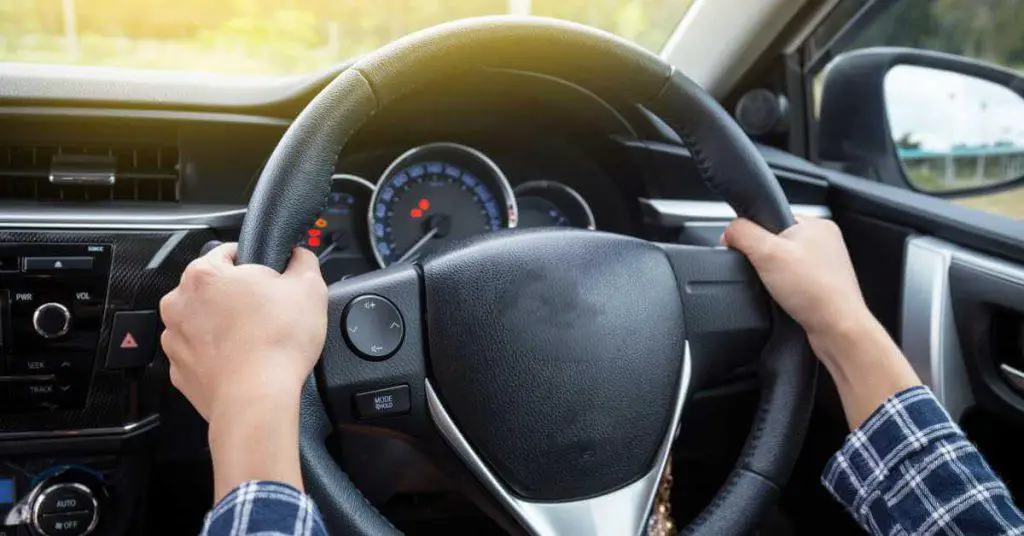Have you ever noticed grinding noise while turning your car? You know the one I’m talking about— This grinding noise shows that the car is trying to tell you something’s not quite right. Well, you’re not alone. This strange sound is a common issue, and while it may seem like a minor occurrences, it could point to something more significant under the hood. Let’s dive deep into what could be causing your steering to grind when you turn and how you can fix it before it gets worse.
What’s That Grinding Noise?
The first time you hear a grinding noise when you turn, it’s tempting to ignore it and hope it goes away. But that sound is more than just a nuisance. It’s your car’s way of saying, “I need attention!” The grinding often comes from something rubbing or being worn down, and ignoring it could lead to expensive repairs or, worse, dangerous driving conditions.
What are the Common Causes of Grinding Noise When Turning the Steering?
So, why is this happening? Let’s break down some of the most common causes, steps to identify them, and simple ways to solve the problem.
1. Low Power Steering Fluid
One of the most frequent reasons for grinding during a turn is low power steering fluid. This fluid acts as a lubricant for your power steering system, making turning the wheel smooth and easy. When the fluid level is low, you may start to hear grinding noises, especially when making sharp turns. Without enough fluid, parts of the steering system begin to rub against each other, causing that unpleasant sound.
What Can You Do?
- Check the power steering fluid reservoir. If the level is low, top it up.
- If it’s frequently low, you might have a leak. Inspect the hoses and seals for any signs of fluid escaping.
- Refill the fluid as a temporary fix, but make sure to address the root cause—whether it’s a leak or worn-out components.
2. Worn-Out CV Joints
Your car’s CV joints (constant velocity joints) are responsible for transferring power from the transmission to the wheels, allowing them to move at a constant speed while turning. When these joints wear out or become damaged, they can make a clicking or grinding noise, especially noticeable during tight turns.
How to Spot It?
- The sound typically gets louder the more you turn the wheel.
- In some cases, you might feel a slight vibration in the steering wheel.
- A torn CV joint boot might also be visible, which lets in dirt and debris, speeding up wear and tear.
If left unchecked, a damaged CV joint can lead to more serious problems, like losing control of your car.
3. Failing Wheel Bearings
Wheel bearings are essential to the smooth rotation of your wheels. These small but mighty parts reduce friction between the wheel and the axle, allowing the wheel to spin freely. But when wheel bearings wear out, you’ll likely hear a grinding noise, particularly when turning or accelerating.
How to Know It’s the Bearings?
- The grinding sound will be more noticeable during sharp turns.
- In some cases, you might also feel a bit of a wobble in the steering wheel, signaling uneven wheel movement.
- If you ignore this for too long, it could lead to the wheel seizing up, making your car unsafe to drive.
Replacing wheel bearings isn’t something you want to delay, as it can lead to further damage to your wheel assembly and suspension system.
4. Damaged Steering Rack
Your car’s steering rack is responsible for converting the rotational motion of your steering wheel into the linear motion that turns your wheels. If the steering rack becomes damaged or worn out, you may hear grinding noises, especially during turns.
Symptoms of a Faulty Steering Rack:
- The grinding noise is usually accompanied by difficulty turning the wheel.
- You might also notice that the steering feels loose or unresponsive.
- Over time, the grinding can worsen, making it harder and more dangerous to steer your car.
In some cases, the steering rack can be repaired, but if the damage is severe, you may need to replace it entirely.
5. Worn-Out Brake Pads
Sometimes, what you think is a steering problem could actually be related to your brakes. Worn-out brake pads can cause grinding noises, especially if the metal backing is coming into contact with the rotor. This is more noticeable when turning, as the added pressure on the brakes during a turn can amplify the noise.
How to Tell if It’s the Brakes:
- The grinding sound may be more pronounced when you apply the brakes, even slightly, during a turn.
- You might also notice that your car takes longer to stop or feels less responsive when braking.
Brake pads are relatively easy to replace, but ignoring them can lead to damage to the rotors, which is a much more expensive repair.
6. Faulty Suspension Components
The suspension system in your car is made up of various components, including shocks, struts, and control arms, all designed to absorb bumps and keep your ride smooth. When any of these components wear out or become damaged, they can produce a grinding noise, especially when turning or driving over uneven surfaces.
Signs of Suspension Issues:
- The grinding noise might be accompanied by a rougher ride, with the car bouncing more than usual.
- You could also notice uneven tire wear, indicating that the suspension isn’t keeping the tires in proper contact with the road.
Replacing worn-out suspension components can improve both the noise and the overall handling of your car.
7. Failing Differential
If your car has rear-wheel or four-wheel drive, the grinding noise might be coming from the differential. The differential is responsible for distributing power to the wheels, allowing them to rotate at different speeds during a turn. When the differential wears out or lacks proper lubrication, it can produce grinding or whining noises during turns.
What to Watch For:
- The noise is most noticeable when making sharp turns at low speeds.
- In some cases, you might also feel the car “dragging” or struggling to maintain speed during a turn.
Checking and replacing the differential fluid regularly can help prevent this issue. If the differential is already damaged, though, you may need to replace it.
8. Binding Steering Components
Your car’s steering system involves several components working together to make turning smooth and effortless. If any of these components, like the tie rods or ball joints, become worn or start to bind, you’ll hear grinding or creaking sounds when you turn the wheel.
How to Identify It:
- The grinding noise is usually paired with stiffness or resistance when turning the wheel.
- In extreme cases, the steering might lock up momentarily during a turn.
It’s essential to inspect the steering system regularly and replace any worn-out parts to ensure the car remains safe to drive.
9. Worn Bushings
Bushings are rubber or polyurethane components that provide cushioning between parts of your car’s suspension and steering systems. Over time, these bushings can wear out, causing metal parts to rub together, which creates a grinding noise during turns.
Why This Happens:
- As bushings wear out, they become less effective at absorbing vibrations and reducing friction between moving parts.
- The grinding noise might also be accompanied by clunking or knocking sounds, particularly when driving over bumps.
Replacing worn bushings can reduce the noise and improve the overall handling of your car.
10. Power Steering Pump Failure
The power steering pump plays a crucial role in making it easier to turn the wheel. If the pump starts to fail, you may hear a grinding or whining noise, especially when turning at low speeds or when the car is stationary.
Warning Signs of a Bad Pump:
- The steering may feel stiff or unresponsive, particularly when making sharp turns.
- You might notice that the noise is louder when you first start the car and decreases as the engine warms up.
Replacing a failing power steering pump is essential to keep your car’s steering system functioning properly.
11. The Role of Tires in Steering Noise
It might surprise you, but even your tires can contribute to that grinding noise when you turn. If the tread on your tires is uneven or excessively worn, the tires may struggle to maintain traction, leading to a grinding or screeching sound.
Tire Troubleshooting Tips:
- Check the tread depth on your tires. If they’re worn down unevenly, it could be affecting how the car handles turns.
- Uneven wear can also indicate misalignment or suspension problems, so don’t just assume it’s the tires alone.
Rotating your tires regularly and ensuring they’re properly inflated can help reduce noise and improve steering performance.
12. Steering Column Issues
The steering column connects the steering wheel to the steering mechanism. Over time, components within the steering column can wear out or become misaligned, causing grinding or creaking noises during turns.
What to Look For:
- You may notice the grinding noise is more pronounced when turning the wheel at lower speeds.
- There might also be a slight play or looseness in the steering wheel itself.
If you suspect the steering column is the source of the noise, it’s essential to have it inspected and repaired by a professional.
13. Could It Be the Alignment?
If your car’s alignment is off, it can affect how the steering components work together, potentially causing grinding noises during turns. Misalignment can occur after hitting a pothole, curb, or simply as a result of wear and tear over time.
Signs of Misalignment:
- The car pulls to one side when driving straight.
- Uneven tire wear is often a telltale sign that your alignment is off.
Getting your alignment checked and corrected can prevent additional wear on your tires and reduce any associated noises.
Is It Safe to Keep Driving?
It’s easy to put off addressing a grinding noise, especially if it only happens occasionally. But the truth is, driving with a grinding noise coming from your steering can be dangerous. Many of the causes, such as worn-out bearings or steering components, can lead to loss of control if left unchecked.
Even if the issue seems minor, it’s always a good idea to have it inspected as soon as possible.

